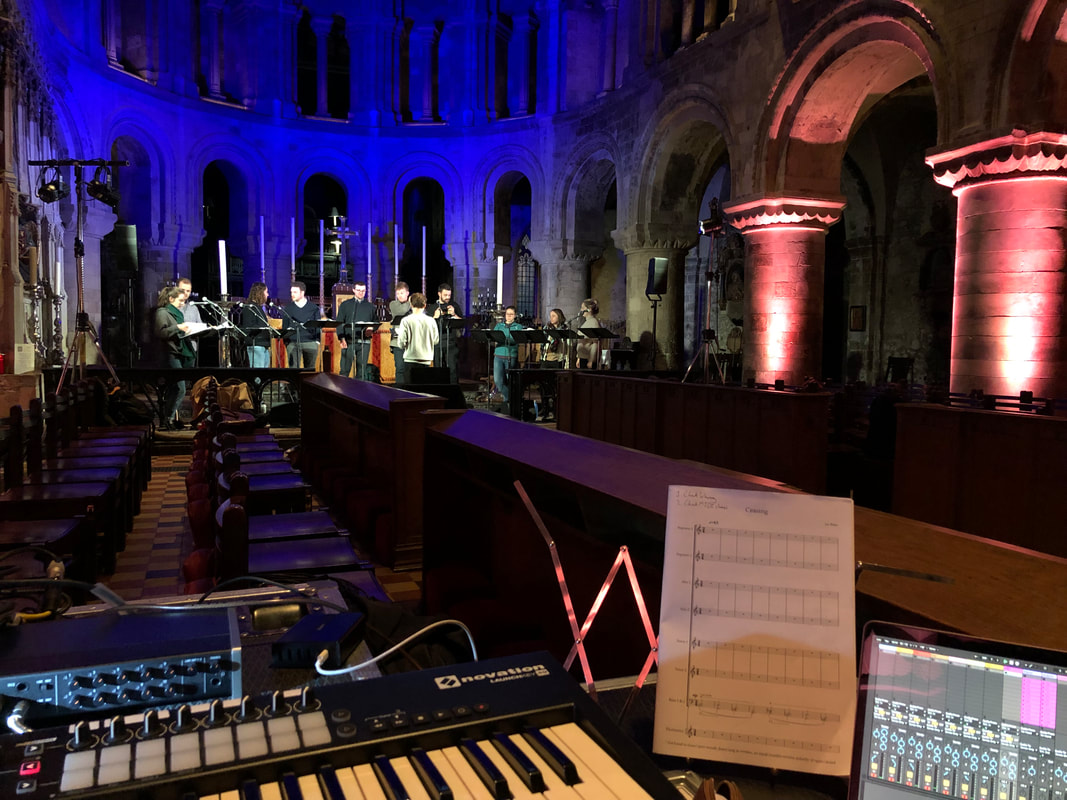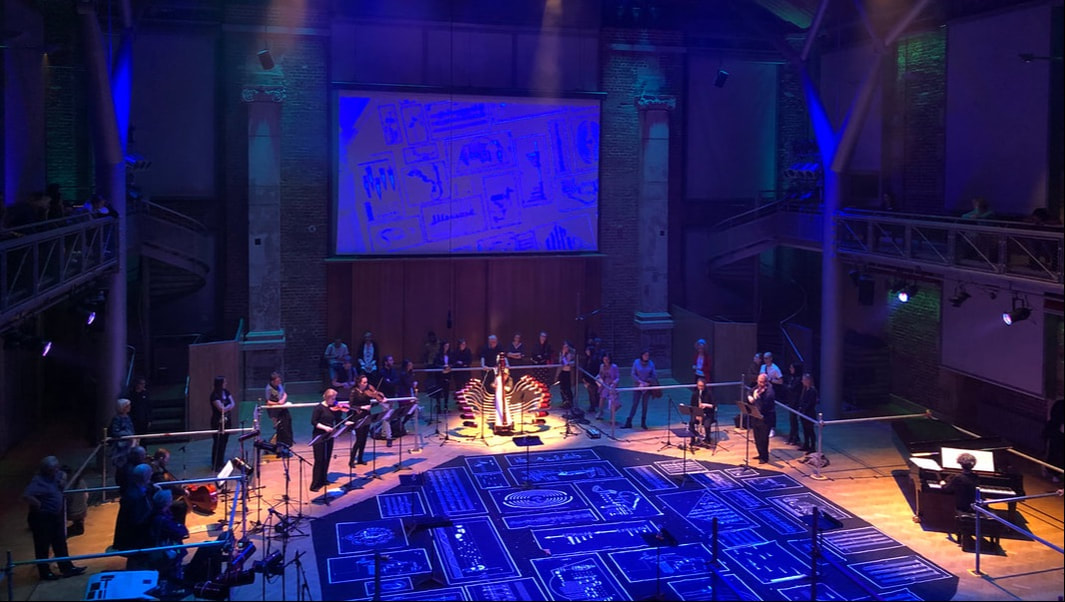|
Sound Unbound this weekend was excellent, I had a wonderful time as both an audience member and as a performer. SANSARA’s performance of my piece was a wonderful experience. It’s a tricky work, but it had really clicked by the final rehearsal. I was overwhelmed with the response from the audience, who were incredibly generous in sharing many of their own stories of death with us after the show. I look forward to working through them and thinking about how they’ll affect the project. Please do sign up to my mailing list there on the right if you want to stay up to date with the Vox Machina project, and to hear the recording when we put it out! You should also sign up to SANSARA's to see all their future concerts. I knew going from the outset that death was a very emotive topic to write about (obviously!), yet the response still came as a surprise. Having been involved in the technical aspects of the work for months, it had almost become “just another piece”. The emotions resurfaced in rehearsal, particularly over little details in the text that reminded me of certain stories. But sharing it with my family and watching people actually cry in the performance was incredibly moving. I am still somewhat verklempt. I was only able to make three other events at the festival: Amir Konjani’s To Be Someone Else Is A Battle, the 12 Ensemble, and the Nonclassical after party. (I had planned to go to many more, but it turns out that surround sound will transform the balance of your electronics, resulting in an afternoon of nervous editing.) Konjani’s piece was quite something. The whole thing was wonderfully over-the-top, with a custom harp, a jerry-rigged “kraken cello”, a massive graphic score, live graphics, silicon chicken feet and much more. It was very aesthetically forceful, conjuring a concrete and lively world. I particularly enjoyed the string quartet, but wished I had sat nearer the harp, as its sound was really remarkable. The 12 Ensemble was superb, as always. I loved the arrangement of Prokofiev’s Visions Fugatives and as always was very taken by Oliver Leith’s work. In particular, writing a string piece called Honey Siren and then not playing any glissandi for the first ten minutes was an excellent choice, as was the deadpan but emotional ending. To be honest, I was quite drunk by the time we reached the Nonclassical after-party. But it was great to hear the live version of the Jerk Driver remix, which is a great track. I spoke to a lot of performers and audience members about the festival and the feedback was incredibly positive. Everyone reported having had large and diverse audiences, and the chance to play to people who would not have normally come to their gigs. It was a vindication of the power of a big institution like the Barbican putting in a lot of work and money to provide something free and unticketed. This is hard and risky: you don’t know if anyone will turn up until the concert begins. But it clearly paid off.
Big institutional interventions like Sound Unbound are only possible in a context. All of the ensembles performing have lively practices, committed audiences, and a dense network of collaborators, but many were not the big, established names. To pull off impressive biennial events, you need a lively, less institutional scene that is producing new ideas and thick social networks of artists. Sound Unbound, for me, offered an example of how things should work: established institutions using their clout to diversify audiences and to give platforms to the rich ecosystem of contemporary music.
0 Comments
Leave a Reply. |
NewsYou can find out about recent and upcoming projects here, and stay up-to-date with email or RSS below.
Archives
July 2024
|
|
All photographs by Ilme Vysniauskaite
|


 RSS Feed
RSS Feed